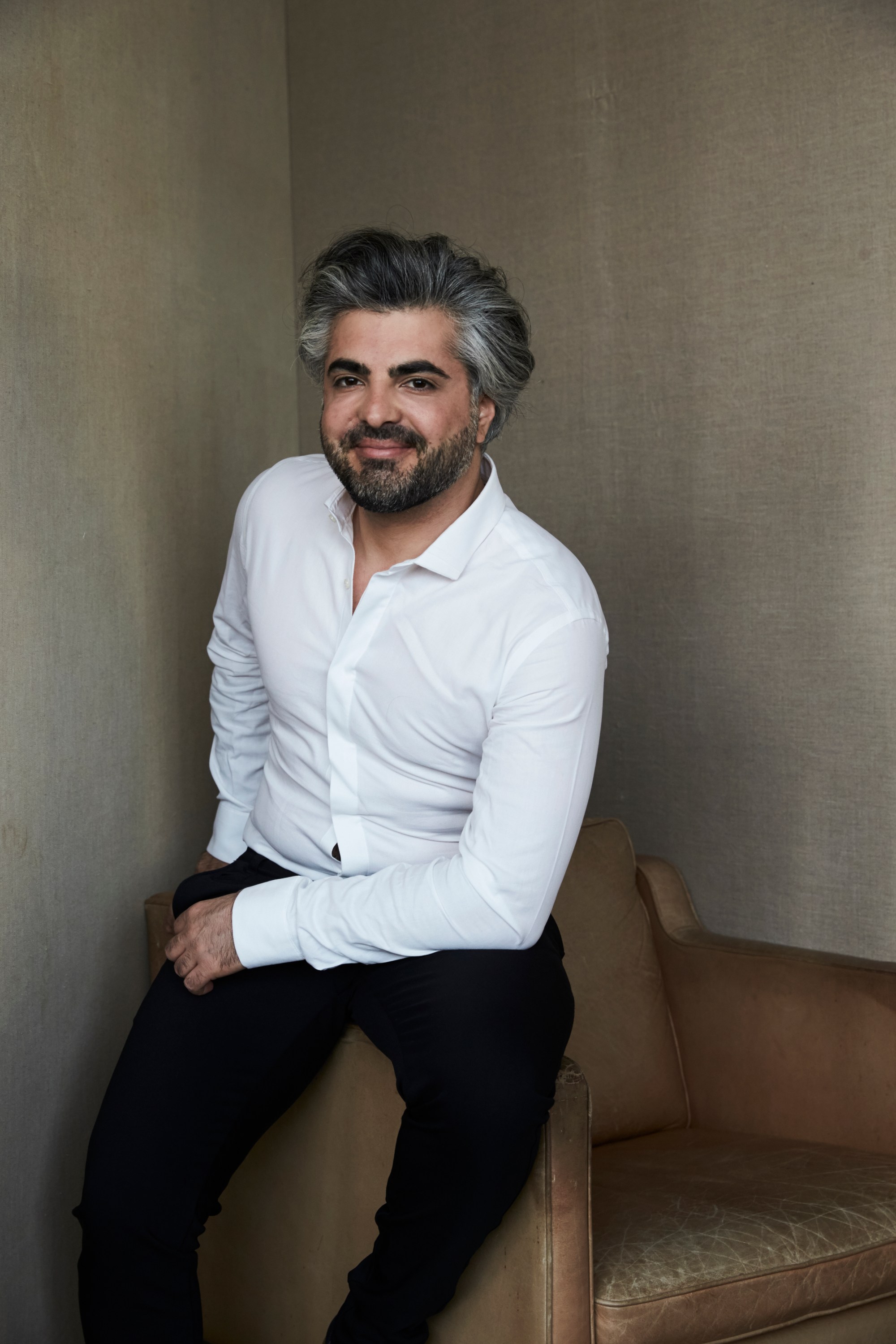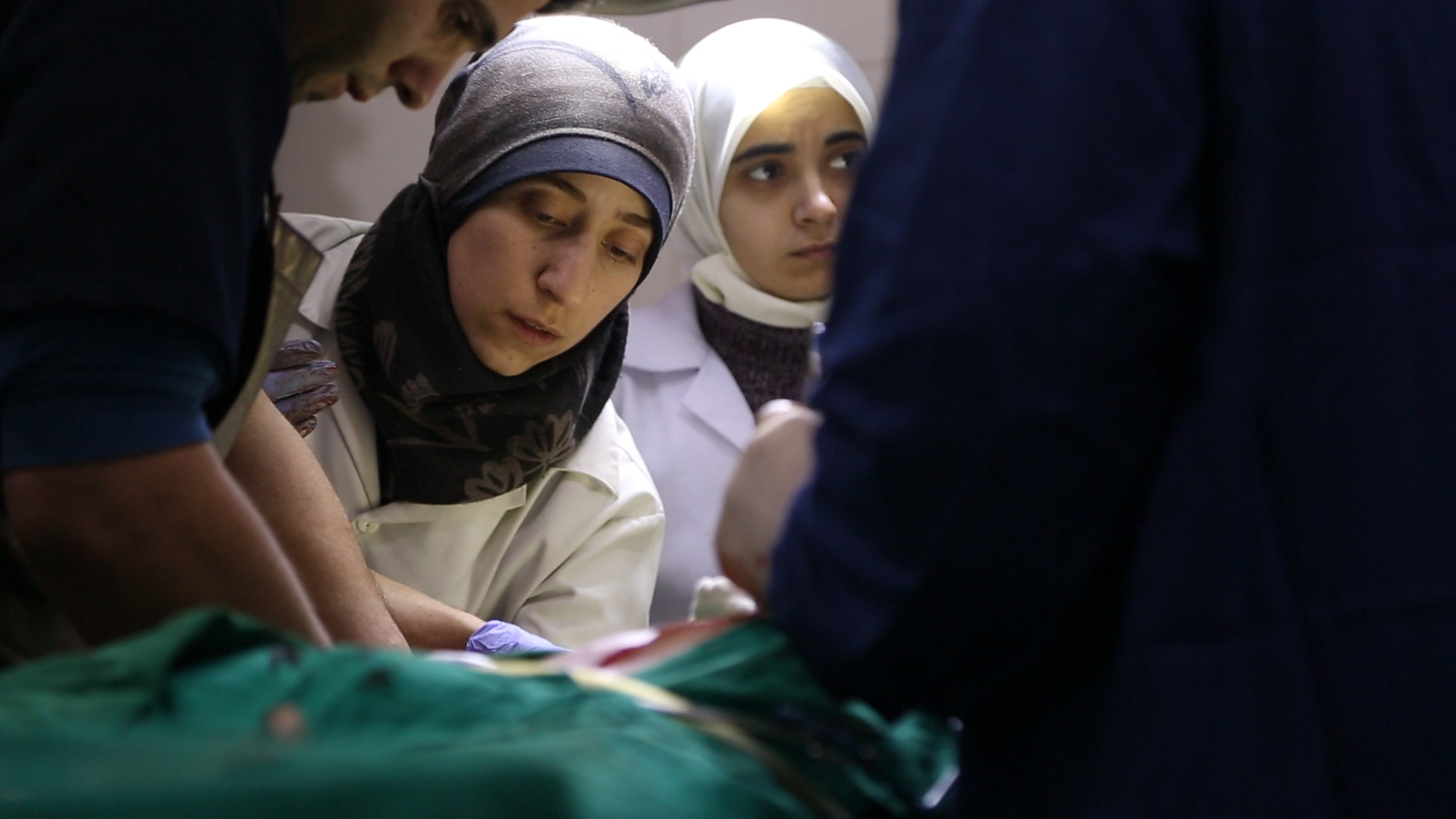
- Interviews
Hope and Humanity in ‘The Cave’
It was while shooting the documentary The Cave is a film about hope and humanity in a world, where there seems to be none. We met the director, whose film is released by National Geographic Documentary Films.
You knew about Dr. Armani for a long time because she was active in the feminist and peace movement in Syria. How did you decide to make a film about her?
At the beginning of the film, we had not decided that yet, because when you make a documentary there are so many unknown factors. And when you make a film in a war-torn country in particular, unforeseen things happen. We did not know if Dr. Armani would live for instance. We could also die at any moment. So it was not until we were in the editing room that we could decide how to shape our story completely. Also, we could not show the location of the hospital, so we could not tell her story until she had fled to Turkey. Even in the editing room, we were concerned that she would be safe and that her family would be safe. We were concerned about the safety of every single character seen in the film.
With The Cave, you have made a film that is not just about the horrible war in your country, Syria. It is a film about hope and humanity. Was this a deliberate choice?
One of the great things about Dr. Armani is that she represents the voices of the new generation from Syria. She represents those who believe in the revolution that we started in the streets in order to change the political system that is leading the country – copied from Stalinism or the Korean system. Dr. Armani represents our voice and we find hope when we see a woman who can face the liars. Our problem is that we have been surrounded by so many lies. So I saw the hope for change in her. One of the biggest things that can change our country is a woman taking a position that can change the way we look at political and social issues, at equality, justice, sexuality, and identity. This is what we need and this is what I support. My vote and voice were taken from me from my childhood because of the dictatorship and I see Dr. Armani as a metaphor for the voices that were taken away from us. There is a social revolution happening deep in our society and we should show this revolution because it can inspire people.
So it is a political film?
I think Dr. Armani herself is a political figure. She moves fearless around in the streets, where women should not be walking – where they are not allowed to walk. Have you seen women walking like this in the middle of streets of destruction? She is walking and she is not afraid of the snipers and kidnappers: She is walking. She is challenging the face of destruction. She faces the Russian and Syrian warplanes that are bombing her country and her hospital. She is strong and she challenges the masculinity of the war.
In your opinion, why was it the right choice to focus on her?
Because there is a social revolution happening and she leads this movement. This is not seen before in any film about the war in Syria. She is not just a survivor. She is a person who decided to stay because of her social values. She is saving lives and helping people but she was also very influential and important in terms of other women staying and working in this hospital. She is a role model and she shows that women can change society. She shows other women: You can do that. When people see what she can do, bigger changes in society will be able to happen.

Dr. Armani in action in a scene from The Cave.
national geographic documentary films
Were you surprised by Dr. Armani’s achievements?
I did not know that Dr. Armani was the first woman to be a leader of a hospital in Syria, who can actually make decisions and is a true manager, who has 114 people working under her. It is a hospital set to serve 400.000 people. Her work was not just saving lives but she also worked actively in employing women in her hospital. She encourages women to work and she believes this is the way to make a change. She also tries to influence all young girls and talk to them about their future. So she is also part of a feminist movement and she is a very strong woman and thus people felt that she was equipped to lead the hospital because she truly was.
How did she react to the film?
She was surprised and said: ‘It is about me?!’. She was very humble and a little bit upset and asked me why I did not use the other footage from the other hospitals. She did not want it to be about her. I told her that her story is not just representing her but it is a story that represents all women. It is about a woman who decides to do this job under the most horrific circumstances that any human can imagine, so she would be an inspiration for everyone. She did not want more attention than anyone else.
You were nominated for an Oscar for The Last Men in Aleppo and you were also nominated for The Cave. However, you almost did not make it to the ceremony because you had issues getting a Visa to the US. What was this situation like?
I can compare it to being Jewish during the Second World War. It is the same situation. It is hard to move around. It was hard to finish the film because I could not get into the US to finish it. An ordinary citizen moves from city to city and my movements were restricted. I am trying to put attention on an important issue happening right now and they were kind of taking away my freedom of expression and I was held for using my voice on an important issue. I was telling an inspirational story about a good human being who does good things: Dr. Armani, who saved lives.

